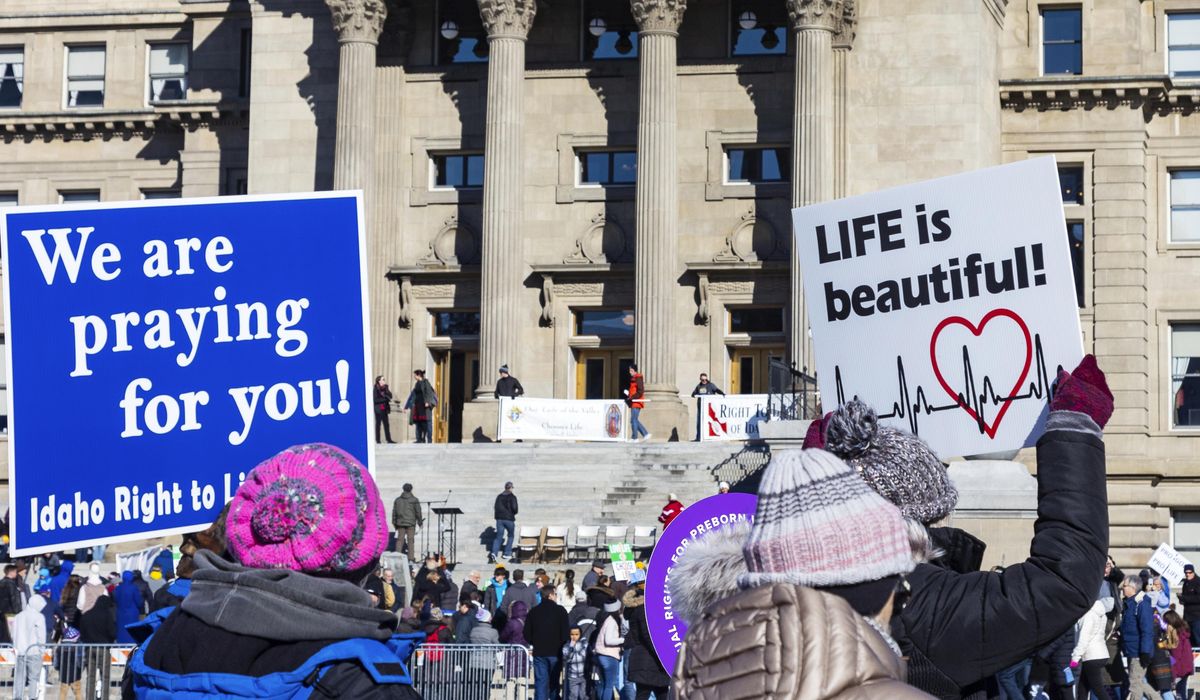


Idaho asked the Supreme Court Monday to step in and let it enforce its pro-life law — enacted after the high court’s ruling last year ending a national right to abortion — over objections from the federal government.
In a filing Monday, the state told the justices that a federal district court sided with the Biden administration after it sued the state over its pro-life law, Idaho’s Defense of Life Act, that was set to take effect in August 2022.
Under the state legislation, abortion is permitted only to save the life of the mother. A physician who violates the law could serve more than two years in prison.
The federal government, though, sued and pointed to the Emergency Medical Treatment and Labor Act, arguing abortions must be performed under federal law in emergency rooms. The feds said the federal law, which mandates health care services be available to all in emergency rooms, usurped the state’s law.
The lower court sided with the feds, blocking the law from taking effect for now.
The state counters that it should be allowed to enforce its pro-life restrictions and that a Texas court has rejected the feds’ claims about the Emergency Medical Treatment and Labor Act upending state pro-life legislation.
Idaho, in its filing, said the lower court’s injunction turns the federal law into “a federal super-statute on the issue of abortion, one that strips Idaho of its sovereign interest in protecting innocent human life and turns emergency rooms into a federal enclave where state standards of care do not apply.”
The filing was presented to Justice Elena Kagan, an Obama appointee who oversees appeals from the 9th U.S. Circuit Court of Appeals. The court requested a response from the feds by Thursday as it weighs whether to let Idaho’s law take effect while the litigation works its way through the courts.
The high court ruled in June 2022 in Dobbs v. Jackson Women’s Health Organization that the issue of abortion belonged to state legislatures. The ruling overturned the 1973 landmark case of Roe v. Wade, which stipulated a national right to abortion.
Since the ruling in Dobbs, legislatures in red states have moved to limit abortion in their states. Blue states, meanwhile, have sought to open their borders for nonresidents to come and have the procedures.
The federal government under President Biden’s leadership also has sought ways to make abortion more accessible.
• Alex Swoyer can be reached at aswoyer@washingtontimes.com.
